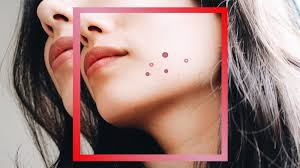Tips To Get The Perfect Hormonal Acne Treatments:

Hormonal acne is usually known as acne or acne vulgaris . It is called hormonal acne because of the way the skin problem develops In response to the changes in hormones and especially a rise in androgens like testosterone. Rise in androgen levels trigger the process of higher sebum production, skin cell activity changes, colonization of the hair follicles by a bacteria called propionibacterium acnes, inflammation . This may lead to acne.Acne lesions of differing severity affect the upper body and face. Acne is a common and treatable condition. Healthy Remedies provide the best and effective hormonal acne treatment.
What Is Acne?
Acne is a skin condition that happens when the body secretes excess sebum , an oil that stops skin from drying out and comes together with dead skin cells in a pore. The place where the clogging occurs, an acne lesion can form there. The lesions formed by acne include comedones, which are open or closed plugs, that form at the hair base. Other lesion types include –
● Pustules
● Papules
● Cysts
● Nodules
When bacteria become involved with the plugs, these four types of lesions of increasing severity and size are formed. The bacteria cause inflammatory responses from the immune system. Acne is a very common skin condition in the United States. The AAD (American Academy of Dermatology), estimated that there may be as many as 50 million people in the United States having acne.
Symptoms
Acne symptoms include –
● Blackheads
● Whiteheads
● Pustules
● Papules
● Nodules
● Cysts
Blackheads and whiteheads are not inflamed and do not cause swelling or pain. If they become inflamed, they become pustules or cysts. Inflamed lesions may be sore, painful and red. The lesion and the area surrounding it may be raised.
Lesions mostly appear on the face, neck, shoulders, chest, back. They mostly appear on the forehead than the other parts of the face, like the cheeks because sebum levels are higher in this area.
Depression can be an acne complication because of the impact on self esteem.
80% of people between the age of 11 and 30 years and specially from 14 to 19 years are thought to be affected by acne. Some people even experience acne after the age of 30 years. During pregnancy and near Menopause, hormonal changes may again cause acne to affect women.
Natural Treatment
Examples of alternative treatments for Acne are the herbal medicines. They are basically harmless but there is an example of using tea tree oil and clove basil .
Practical Tips
Self care advice for Acne can help with the problem or can avoid making it worse.
● Wash gently daily not more than twice a day and after sweating.
● Using cleansers or mild soaps and warm water but not hot water
● Avoid picking, scrubbing or scraping pimples as this can make them worse and cause inflammation
● Don’t use makeup or use water based cosmetics that are marked as non comedogenic.
● Avoid environments with high humidity that causes excessive sweating
Overwashing is not good for Acne. Too much scrubbing and washing removes oil from the skin and irritates it more. The skin then responds by producing more oil and so worsen the acne.
The Treatment
Acne is treated according to severity. Mild acne may be treated with over the counter products and also with medicines offered by doctors. There is no quick fix treatment. All treatments take weeks to give results.
Mild acne treatments that are available without prescription include antibacterial skin cleansers. Benzoyl peroxide is a topical drug available in the market that can help. While using medications to treat acne you should avoid direct sunlight and tanning beds, as the skin is more sensitive to UV light at this time.
Moderate acne may be treated by oral antibiotics Various products to treat acne are available online for purchase.For severe acne a Dermatologist needs to be seen. Visit a good skin clinic and ensure you check their licence as well.
